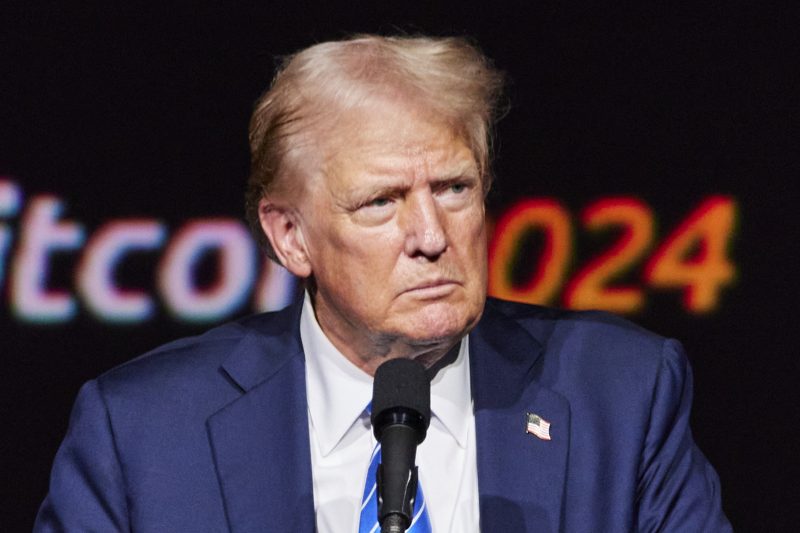In a recent speech, former President Donald Trump unleashed a barrage of false claims regarding the national debt and taxes, perpetuating inaccurate information that can have far-reaching consequences. Trump’s rhetoric on these critical economic matters reflects a concerning trend of misinformation that can impact public perception and policy decisions.
One of the key falsehoods propagated by Trump is his assertion that under his administration, the national debt decreased. In reality, the national debt increased significantly during his time in office, reaching historic highs. This misinformation not only distorts the public’s understanding of the economic realities but also undermines the credibility of government officials and institutions.
Furthermore, Trump’s claims about the impact of tax cuts on economic growth and revenue collection are also misleading. While he touts the Tax Cuts and Jobs Act as a boon for the economy, the reality is more complex. Studies have shown that the tax cuts primarily benefited the wealthy and corporations, while doing little to spur sustained economic growth or increase tax revenues.
By perpetuating these false claims, Trump is not only misleading the public but also hindering constructive debate on economic policy. Inaccurate information can lead to misguided decisions that have real-world implications for individuals and communities. It is essential for political leaders to be honest and transparent about economic matters to ensure informed decision-making and accountable governance.
Moreover, Trump’s tendency to exaggerate his administration’s economic achievements detracts from a meaningful discussion of the challenges facing the country. Tackling issues such as income inequality, infrastructure investment, and fiscal responsibility requires a fact-based approach and a commitment to honesty and accuracy.
Ultimately, the spread of falsehoods on critical economic matters undermines the trust in government and erodes the foundation of a functioning democracy. It is essential for political leaders and public figures to uphold the truth and prioritize the dissemination of accurate information to empower citizens and promote a well-informed public discourse. Misinformation has no place in shaping economic policy and must be challenged and corrected to ensure a prosperous and equitable future for all.
